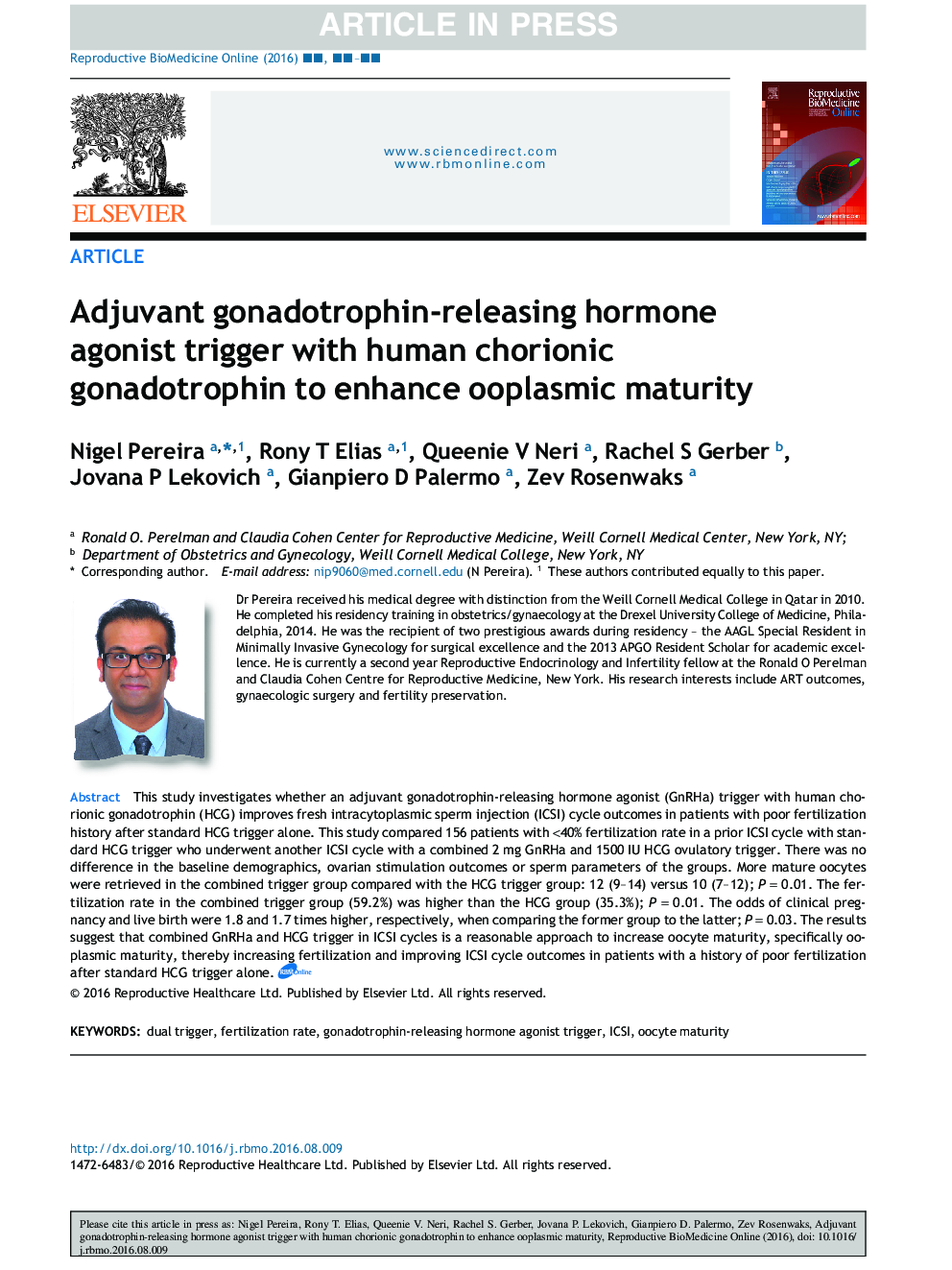| Article ID | Journal | Published Year | Pages | File Type |
|---|---|---|---|---|
| 5696640 | Reproductive BioMedicine Online | 2016 | 7 Pages |
Abstract
This study investigates whether an adjuvant gonadotrophin-releasing hormone agonist (GnRHa) trigger with human chorionic gonadotrophin (HCG) improves fresh intracytoplasmic sperm injection (ICSI) cycle outcomes in patients with poor fertilization history after standard HCG trigger alone. This study compared 156 patients with <40% fertilization rate in a prior ICSI cycle with standard HCG trigger who underwent another ICSI cycle with a combined 2âmg GnRHa and 1500âIU HCG ovulatory trigger. There was no difference in the baseline demographics, ovarian stimulation outcomes or sperm parameters of the groups. More mature oocytes were retrieved in the combined trigger group compared with the HCG trigger group: 12 (9-14) versus 10 (7-12); P = 0.01. The fertilization rate in the combined trigger group (59.2%) was higher than the HCG group (35.3%); P = 0.01. The odds of clinical pregnancy and live birth were 1.8 and 1.7 times higher, respectively, when comparing the former group to the latter; P = 0.03. The results suggest that combined GnRHa and HCG trigger in ICSI cycles is a reasonable approach to increase oocyte maturity, specifically ooplasmic maturity, thereby increasing fertilization and improving ICSI cycle outcomes in patients with a history of poor fertilization after standard HCG trigger alone.
Related Topics
Health Sciences
Medicine and Dentistry
Obstetrics, Gynecology and Women's Health
Authors
Nigel Pereira, Rony T. Elias, Queenie V. Neri, Rachel S. Gerber, Jovana P. Lekovich, Gianpiero D. Palermo, Zev Rosenwaks,
